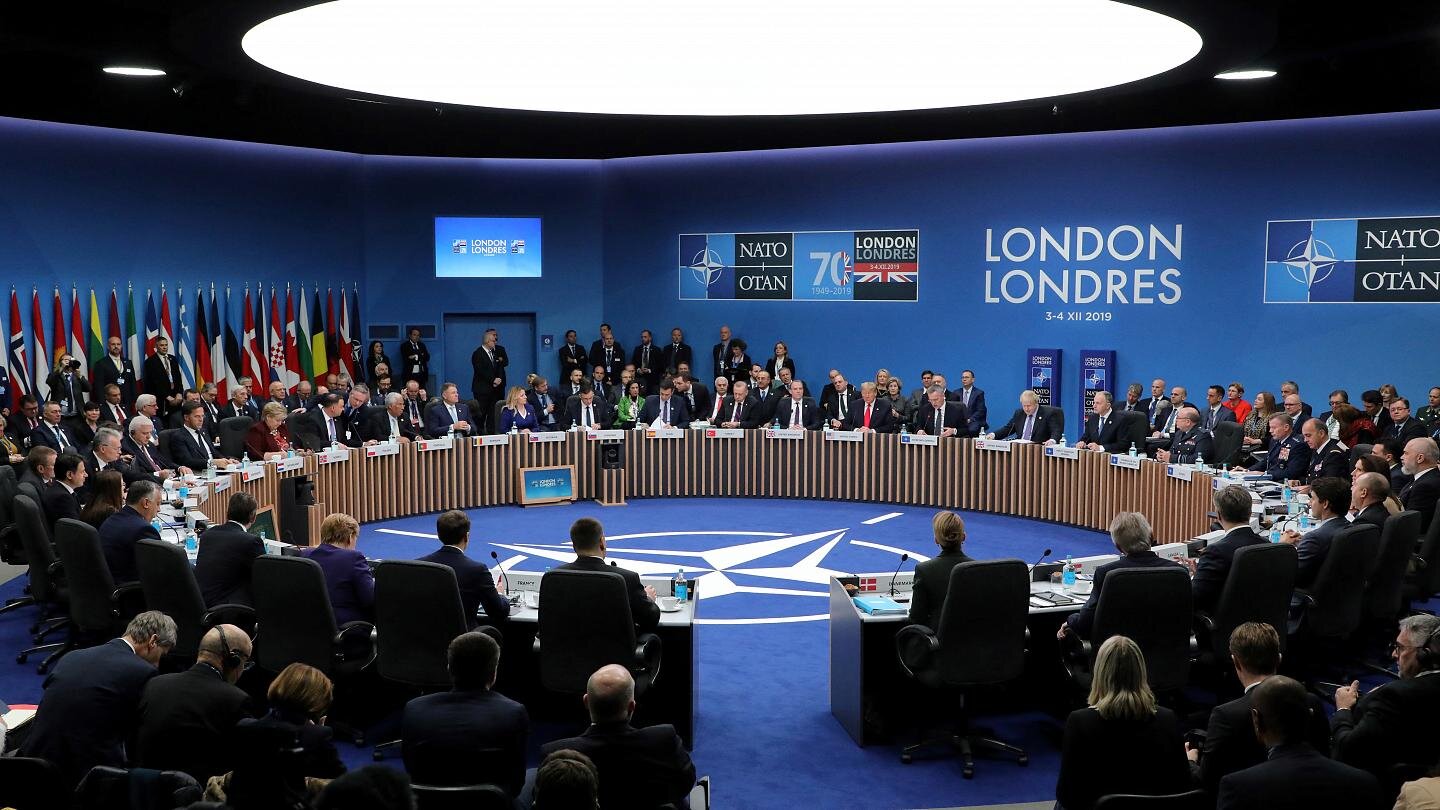Heads of state attend the NATO Summit in London, 4 December 2019 © Ludovic Marin/Pool via REUTERS
This year marks the 70th anniversary of NATO. With Turkey coming under fire for purchasing a Russian defence system and recent disagreement regarding Kurdish militias, we reflect on Turkey’s position within the alliance and ask what the future might hold.
Historically, Turkey has been an important military ally for Europe. Geostrategically positioned straddling Europe and Asia, it has been the eastern pillar of the NATO alliance since 1952. The second largest army within the organisation after the US, Turkey remains an important buffer against the instability of its Arab neighbours; it was yesterday described by NATO chief Jens Stoltenberg as having played a “key role” in fighting ISIS terrorists in Syria. Turkey also guarantees Europe’s energy security: pipelines across Turkey carry Caspian energy which, crucially, reduces European dependence on Russia.
Much of Turkey’s twentieth-century foreign policy focussed on Europe. Such efforts led to the country joining the European Customs Union in 1995, but its application to join the European Union stalled after initial talks in 2005. In the last decade and a half Turkey has turned its head East, both in terms of capitalising on opportunities and abating regional conflict.
In 2015 Turkey joined the Asian Infrastructure Investment Bank (AIIB) as one of its largest shareholders. Soon after, it received a $600 million loan to complete the Trans-Anatolian Natural Gas Pipeline. Turkey has strengthened its relations in particular with Iran and China in recent years: Turkey’s annual trade with China doubled to $27 billion from 2007 to 2016, with China accounting for 13 per cent of Turkey’s imports (with a further 8 per cent coming from other Asian countries). Turkish State Railways plans to lay 9,300 miles of new railway domestically and into its neighbours Georgia and Iran, key infrastructure for Europeans looking to invest in an opening Iran.
As Turkey continues its outreach eastwards, some might predict that, following a European-focussed twentieth-century for Turkey, the twenty-first century will be Asia-oriented. With today’s summit in London, NATO has an opportunity to reflect on the future of its relationship with Turkey. Does it wish to politically isolate Turkey, or does it intend to reaffirm its commitment to this critical Asian gateway nation.
This article was originally published in the Daily Sabah on 24 January 2020.


